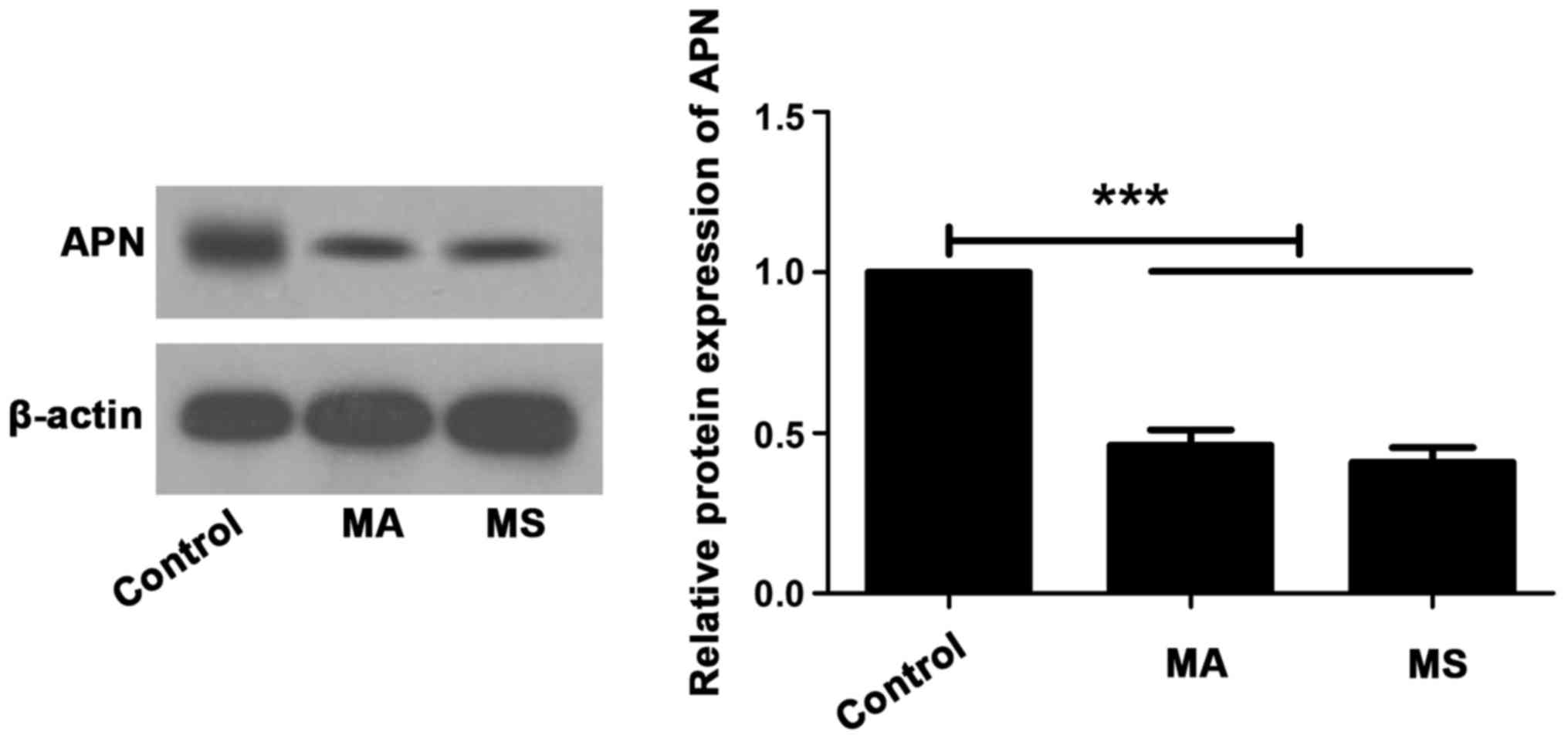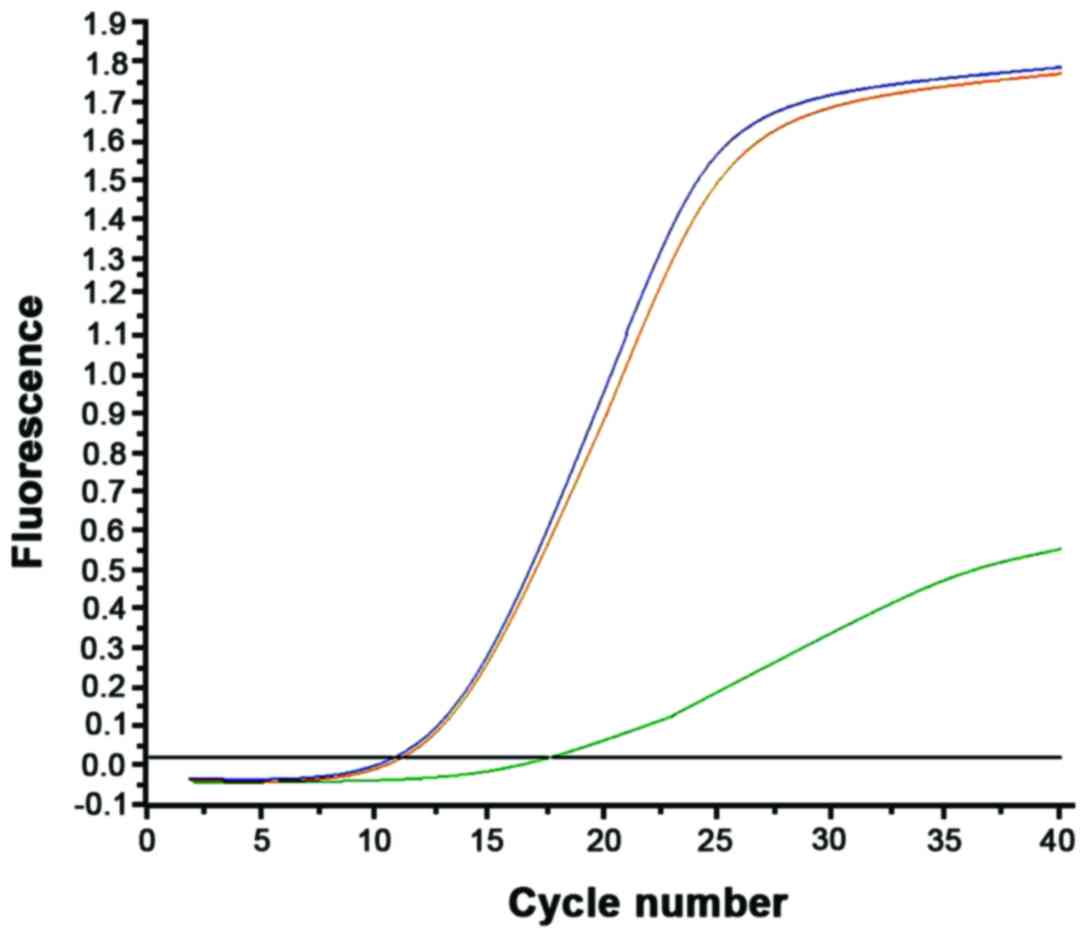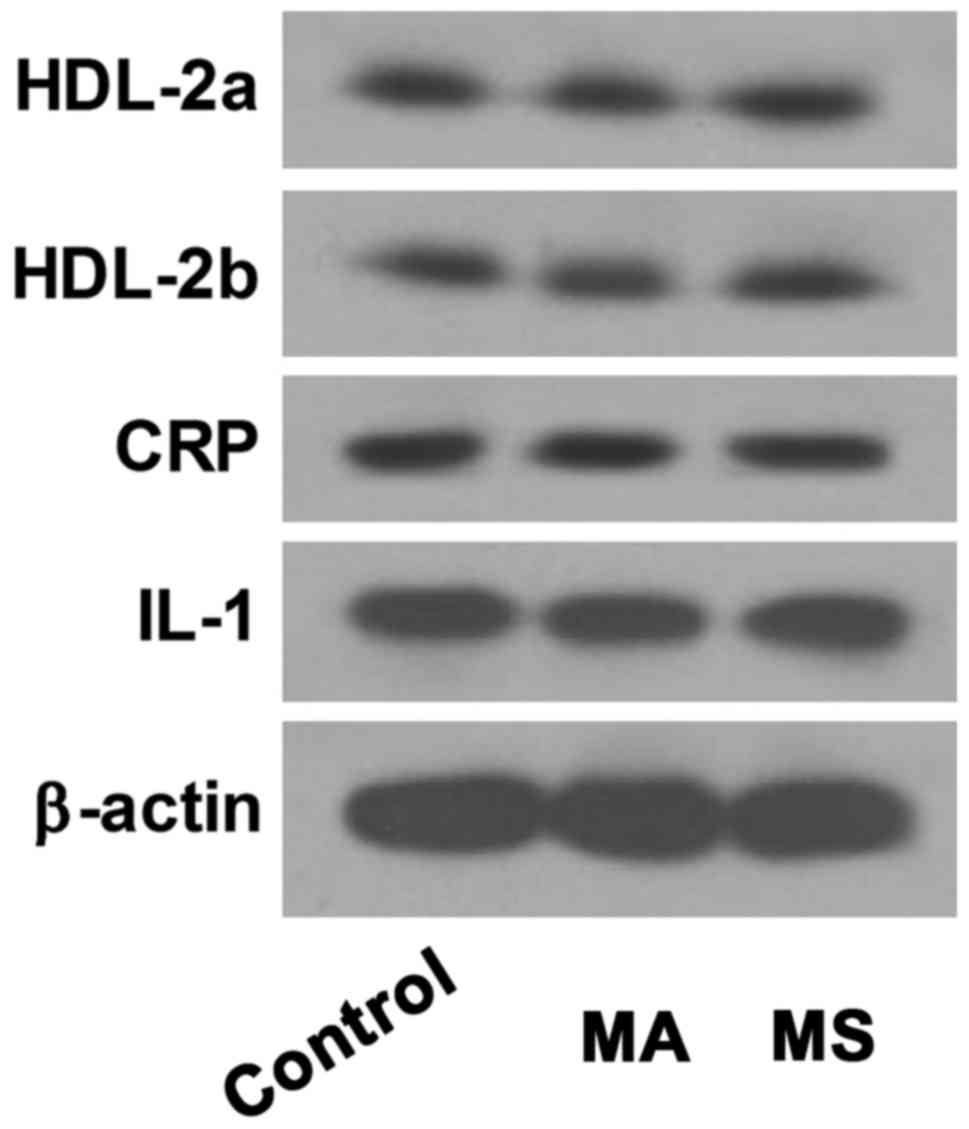|
1
|
Alberti KGM, Zimmet P and Shaw J: IDF
Epidemiology Task Force Consensus Group: The metabolic syndrome - a
new worldwide definition. Lancet. 366:1059–1062. 2005. View Article : Google Scholar : PubMed/NCBI
|
|
2
|
Gastrich MD, Lasser NL, Wien M and
Bachmann G: Dietary complex carbohydrates and low glycemic
index/load decrease levels of specific metabolic
syndrome/cardiovascular disease risk factors. Top Clin Nutr.
23:76–96. 2008. View Article : Google Scholar
|
|
3
|
Kim B and Feldman EL: Insulin resistance
as a key link for the increased risk of cognitive impairment in the
metabolic syndrome. Exp Mol Med. 47:e1492015. View Article : Google Scholar : PubMed/NCBI
|
|
4
|
Yamauchi T, Kamon J, Minokoshi Y, Ito Y,
Waki H, Uchida S, Yamashita S, Noda M, Kita S, Ueki K, et al:
Adiponectin stimulates glucose utilization and fatty-acid oxidation
by activating AMP-activated protein kinase. Nat Med. 8:1288–1295.
2002. View Article : Google Scholar : PubMed/NCBI
|
|
5
|
Kadowaki T, Yamauchi T, Kubota N, Hara K,
Ueki K and Tobe K: Adiponectin and adiponectin receptors in insulin
resistance, diabetes, and the metabolic syndrome. J Clin Invest.
116:1784–1792. 2006. View
Article : Google Scholar : PubMed/NCBI
|
|
6
|
Lee S and Kwak HB: Role of adiponectin in
metabolic and cardiovascular disease. J Exerc Rehabil. 10:54–59.
2014. View Article : Google Scholar : PubMed/NCBI
|
|
7
|
Nigro E, Scudiero O, Monaco ML, Palmieri
A, Mazzarella G, Costagliola C, Bianco A and Daniele A: New insight
into adiponectin role in obesity and obesity-related diseases.
Biomed Res Int. 2014:6589132014.https://doi.org/10.1155/2014/658913 View Article : Google Scholar : PubMed/NCBI
|
|
8
|
Fu Y: Adiponectin signaling and metabolic
syndrome. Prog Mol Biol Transl Sci. 121:293–319. 2014. View Article : Google Scholar : PubMed/NCBI
|
|
9
|
Bouatia-Naji N, Meyre D, Lobbens S, Séron
K, Fumeron F, Balkau B, Heude B, Jouret B, Scherer PE, Dina C, et
al: ACDC/adiponectin polymorphisms are associated with severe
childhood and adult obesity. Diabetes. 55:545–550. 2006. View Article : Google Scholar : PubMed/NCBI
|
|
10
|
Al-Daghri NM, Al-Attas OS, Alokail MS,
Alkharfy KM, Hussain T, Yakout S, Vinodson B and Sabico S:
Adiponectin gene polymorphisms (T45G and G276T), adiponectin levels
and risk for metabolic diseases in an Arab population. Gene.
493:142–147. 2012. View Article : Google Scholar : PubMed/NCBI
|
|
11
|
Cai X, Gan Y, Fan Y, Hu J, Jin Y, Chen F,
Chen T, Sun Y, Wang J, Qin W, et al: The adiponectin gene
single-nucleotide polymorphism rs1501299 is associated with
hepatocellular carcinoma risk. Clin Transl Oncol. 16:166–172. 2014.
View Article : Google Scholar : PubMed/NCBI
|
|
12
|
Samson SL and Garber AJ: Metabolic
syndrome. Endocrinol Metab Clin North Am. 43:1–23. 2014. View Article : Google Scholar : PubMed/NCBI
|
|
13
|
Yesil A and Yilmaz Y: Review article:
Coffee consumption, the metabolic syndrome and non-alcoholic fatty
liver disease. Aliment Pharmacol Ther. 38:1038–1044. 2013.
View Article : Google Scholar : PubMed/NCBI
|
|
14
|
Stumvoll M, Tschritter O, Fritsche A,
Staiger H, Renn W, Weisser M, Machicao F and Häring H: Association
of the T-G polymorphism in adiponectin (exon 2) with obesity and
insulin sensitivity: Interaction with family history of type 2
diabetes. Diabetes. 51:37–41. 2002. View Article : Google Scholar : PubMed/NCBI
|
|
15
|
Fredriksson J, Carlsson E, Orho-Melander
M, Groop L and Ridderstråle M: A polymorphism in the adiponectin
gene influences adiponectin expression levels in visceral fat in
obese subjects. Int J Obes. 30:226–232. 2006. View Article : Google Scholar
|
|
16
|
Zietz B, Buechler C, Kobuch K, Neumeier M,
Schölmerich J and Schäffler A: Serum levels of adiponectin are
associated with diabetic retinopathy and with adiponectin gene
mutations in Caucasian patients with diabetes mellitus type 2. Exp
Clin Endocrinol Diabetes. 116:532–536. 2008. View Article : Google Scholar : PubMed/NCBI
|
|
17
|
Hutter N, Baena M, Sangüesa G, Dávalos A,
Latasa MJ, Escolà-Gil JC, Sánchez RM, Roglans N, Alegret M and
Laguna JC: Liquid fructose supplementation in LDL-R−/−
mice fed a western-type diet enhances lipid burden and
atherosclerosis despite identical calorie consumption. Int J
Cardiol. 9:12–21. 2015.
|
|
18
|
Shih DM, Wang Z, Lee R, Meng Y, Che N,
Charugundla S, Qi H, Wu J, Pan C, Brown JM, et al: Flavin
containing monooxygenase 3 exerts broad effects on glucose and
lipid metabolism and atherosclerosis. J Lipid Res. 56:22–37. 2015.
View Article : Google Scholar : PubMed/NCBI
|
|
19
|
Rudolf J and Lewandrowski KB: Cholesterol,
lipoproteins, high-sensitivity c-reactive protein, and other risk
factors for atherosclerosis. Clin Lab Med. 34(113–127): vii.
2014.PubMed/NCBI
|
|
20
|
Parhofer KG: Increasing HDL-cholesterol
and prevention of atherosclerosis: A critical perspective.
Atheroscler Suppl. 18:109–111. 2015. View Article : Google Scholar : PubMed/NCBI
|

















